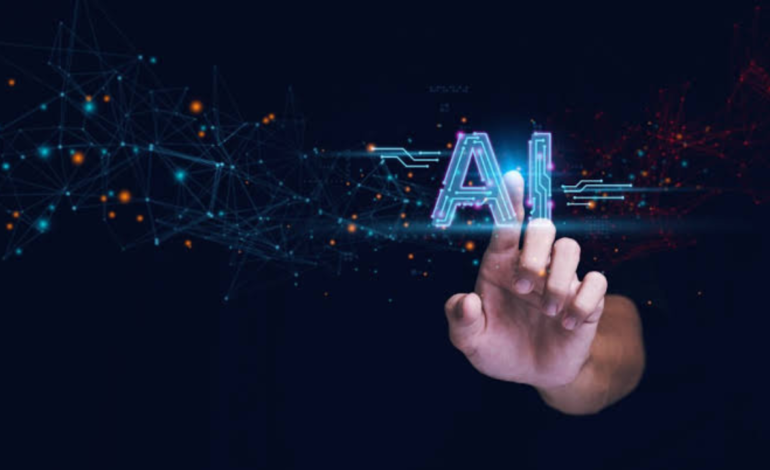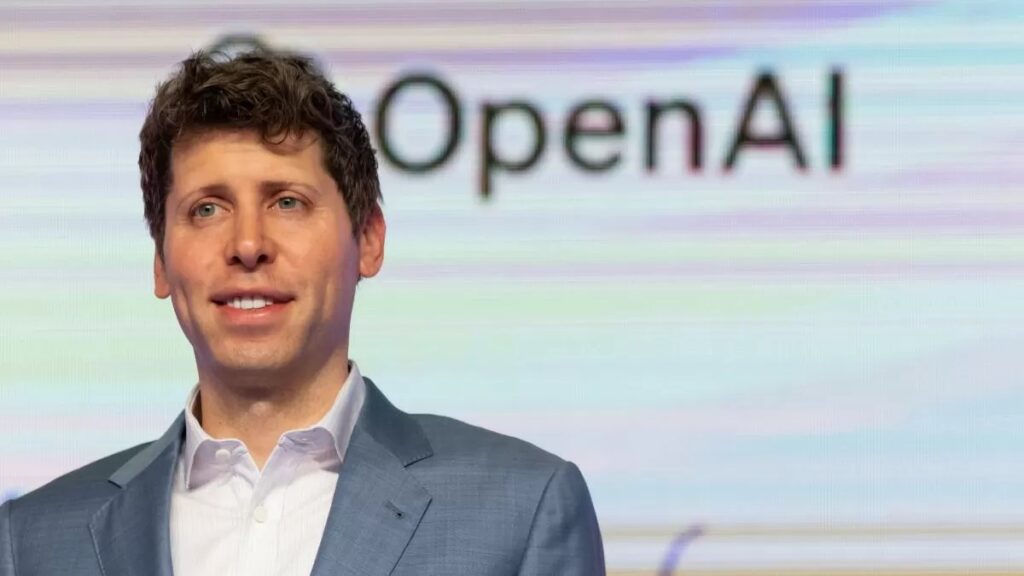Agentic AI in India: A Tale of Two Futures – Disruption and Opportunity

India, with its vast population, young workforce, and rapid growth in technology adoption, stands at a critical juncture. The rise of Agentic AI, systems capable of independently acting, learning, and making decisions, is reshaping industries and driving a new wave of innovation. Yet, as with any disruption, it brings with it both immense opportunity and significant challenges. The growing AI revolution is now poised to affect millions of young Indians who enter the labor force every year, leaving them with one burning question: Will AI enhance their future prospects or displace them entirely?
India’s growing workforce faces a two-fold dilemma: How will AI change the jobs they seek, and will it contribute to their aspirations or render their skills obsolete? With roughly 12-13 million young Indians joining the workforce annually (CMIE), this shift could be one of the most significant transitions the nation experiences in this century.
The Role of AI in India’s Sectors: Transformation or Threat?
India’s economy is diverse, and the impact of Agentic AI will vary from sector to sector. But the common thread running through them all is that AI will reshape industries from the ground up. Some areas will face massive disruption, while others will emerge stronger and more innovative.
The IT Sector: From Code to Creativity
India’s IT sector has been a massive success story. Employing over 5.1 million people (NASSCOM, 2024), this sector has been integral to India’s economic growth, serving as the backbone of its outsourcing industry. However, the increasing sophistication of AI is changing the landscape.

Consider InMobi, a trailblazer in India’s mobile advertising industry. Its CEO, Naveen Tewari, revealed that by the end of the year, they plan to automate 80% of their software coding process. This dramatic shift is a reminder that AI is not just a futuristic concept but an active force reshaping the IT landscape today. As engineers are replaced by algorithms capable of generating code autonomously, their roles are changing. Engineers who once spent their days coding now need to focus on improving product experiences, which requires new skills that AI alone cannot replicate.
Sam Altman, CEO of OpenAI, envisions a future where AI will serve as a “virtual co-worker” for coders, handling repetitive tasks like debugging and code generation, while humans will be tasked with solving more complex problems that AI cannot yet address. This shift will drastically reduce the need for entry-level jobs in software development, potentially displacing thousands of new graduates who have been trained in routine programming. According to the NASSCOM-McKinsey report (2024), experts predict that entry-level jobs in IT could drop by 18-25% in the next few years, signaling a significant change in the way young Indians will have to approach their careers.

Microsoft CEO Satya Nadella has also highlighted the transformative role of AI agents in the tech industry, emphasizing their potential to augment human capabilities rather than replace them. In a recent statement, Nadella noted that AI agents will enable workers to focus on higher-value tasks, enhancing productivity and innovation across sectors. This perspective underscores the dual nature of AI’s impact: while automation may displace certain jobs, it also creates new opportunities for growth and specialization.
The BPS Sector: Automation Comes to the Frontlines
Business Process Services (BPS) outsourcing has been another key driver of India’s employment growth. As of 2024, the BPS sector employs approximately 1.5 million Indians, with millions more dependent on its growth for career opportunities. Traditionally, this sector has been a vital entry point for graduates, particularly in customer service, data entry, and back-office operations. However, AI’s rise is beginning to reshape these roles as well.
Advanced conversational AI is increasingly capable of handling customer queries, processing data, and performing repetitive administrative tasks. The India Brand Equity Foundation estimates that 35-40% of BPS jobs—around 500,000 to 600,000 positions—could be automated by 2029. These are not just mundane tasks being taken over by machines; AI is rapidly learning to deal with more complex human interactions. According to HFS Research, AI is already handling many customer interactions that would have previously required human intervention.

This is a double-edged sword for India’s workforce. On one hand, automation can lead to greater efficiency and cost savings for businesses, but on the other, it threatens to displace large numbers of workers who once relied on these jobs as stepping stones to greater opportunities. Young professionals entering this sector may find that traditional paths to career growth are being eroded, forcing them to upskill or move into other fields.
Banking and Finance: AI Gains a Foothold
Even traditional industries like banking are embracing AI to streamline operations. Tasks that once required human oversight, such as compliance checks, document processing, and basic customer service, are now being handled by intelligent systems. AI is also helping banks predict and mitigate fraud, customize financial services, and analyze vast amounts of data far quicker than any human could.
For entry-level workers, this means that many jobs once viewed as secure may now be vulnerable to automation. While AI promises to reduce human error and improve service efficiency, it also means fewer opportunities for individuals in roles such as clerks, data processors, or customer support agents. However, there is a silver lining: AI is also creating demand for new roles in data science, cybersecurity, and AI ethics—fields that will likely become essential in the future.
Healthcare: Can AI Solve India’s Challenges?
India’s healthcare system is facing a unique set of challenges, from a growing population to a shortage of healthcare professionals. However, AI presents a significant opportunity for transformation. AI is already being used in areas like scheduling, medical record management, and insurance claims processing. More importantly, AI has the potential to support diagnostics and treatment recommendations, providing doctors with powerful tools to make better-informed decisions.

This could make healthcare services more accessible, especially in rural India, where access to medical professionals is limited. For instance, AI-powered diagnostic tools could help doctors in remote areas offer more accurate consultations, bridging the gap between urban and rural healthcare. The speed and scale at which AI can process information could vastly improve India’s healthcare delivery systems, offering new opportunities for innovation while also challenging traditional healthcare roles.
The Bright Side: Opportunities Await
While the potential for job losses and disruptions is undeniable, AI also brings significant opportunities that should not be overlooked. It has the potential to boost productivity, drive scientific breakthroughs, and open new avenues for growth.
Scientific Breakthroughs: Speeding Up Progress
AI’s ability to analyze data faster than human researchers can lead to major breakthroughs across various fields. One of the most notable examples is the recent discovery of the “superbug” resistance mechanism by scientists at Imperial College London, achieved in just 48 hours using AI. The process would have taken years for human researchers to complete. Such breakthroughs have profound implications, especially in India, where healthcare is a growing concern. AI’s role in medical research could dramatically reduce the time it takes to develop treatments and even save lives.
Boosting Productivity
In industries like InMobi, where AI is being leveraged to handle code generation and other routine tasks, workers can focus on more strategic tasks that require creativity and innovation. This increase in productivity can help India remain competitive on the global stage, particularly in fields like software development and digital marketing. Professionals using AI tools could enhance their output by several times, driving economic growth and making India an even more attractive destination for global business.

A New Era for Rural India
AI can also break down the barriers between urban and rural India. With AI-powered apps and language models, individuals in rural areas can gain access to vital services like education, healthcare, and government information. The ability of AI to understand and communicate in multiple Indian languages will make these services more accessible, helping to bridge the divide between rural and urban communities.
The Dark Side: Challenges We Must Confront
While the opportunities AI presents are vast, the challenges it poses cannot be ignored. The question remains: How can India adapt to these changes without leaving millions behind?
Job Displacement: A Major Concern
AI’s potential to automate millions of jobs is a looming threat, and the fact that many of these roles are entry-level positions makes the situation even more urgent. While new opportunities may arise, it is unlikely that AI will create enough jobs to replace those it displaces, at least in the short term. Experts argue that India must focus on reskilling and upskilling programs to equip its workforce with the tools they need to stay relevant in the AI age.
The Skills Gap
One of the biggest hurdles India faces is the widening skills gap. While a degree in computer engineering or business may have been enough to secure a decent job in the past, the future demands constant learning and adaptability. As the job market evolves, education systems must shift toward teaching skills in AI, data science, machine learning, and problem-solving, equipping students to navigate an AI-driven world.
Brain Drain: Losing Our Talent
A growing concern in India is the potential for talent migration. With AI ecosystems flourishing in countries like the US, the UK, and China, there is a risk that India’s best minds may move abroad for better opportunities. This could result in a significant loss of the talent India needs to lead in AI innovation. It’s essential that India fosters a robust ecosystem for AI development within its borders to keep its brightest minds engaged and invested in domestic progress.

Unequal Impact: There’s a risk that AI’s advantages will be concentrated in the hands of a few. If we don’t take action, those who are already privileged could see their wealth and opportunities grow, while others struggle to keep up. We need policies and programs to ensure that everyone can benefit from AI’s potential
The Skills of the Future
For India to thrive in an AI-driven world, certain skills will be essential:
-AI Literacy: Understanding AI tools and how to leverage them effectively will be a key skill in every sector.
– Problem Solving: As AI automates routine tasks, the demand for individuals who can think critically and solve complex problems will grow.
– Industry Expertise: Professionals with deep knowledge of specific industries, combined with AI proficiency, will have a competitive edge.
– Multilingual AI Management: AI systems will need to be fine-tuned to handle India’s vast linguistic and cultural diversity.
– Cultural Understanding: Professionals who understand Indian consumer behavior and local customs will be indispensable in shaping AI technologies for India’s unique market.
New employment opportunities will be generated in industries like manufacturing, robotics, and AI services. For manufacturing, AI is calling for highly skilled personnel in robotics engineering, IoT device management, and digital twin simulations to maximize and streamline production lines.
Embracing Change
As India stands on the precipice of a new era driven by Agentic AI, the nation faces a pivotal moment. Will it capitalize on the opportunities AI presents, or will it falter under the weight of job displacement and disruption? The answer lies in India’s ability to adapt, invest in skills development, and create a thriving ecosystem for AI innovation. The journey will be complex, but with the right strategy, India can navigate the challenges and emerge stronger, making AI a powerful tool for progress, rather than a force of disruption.












Analysed well and narrated in a simple way… hope we will tread in the right direction